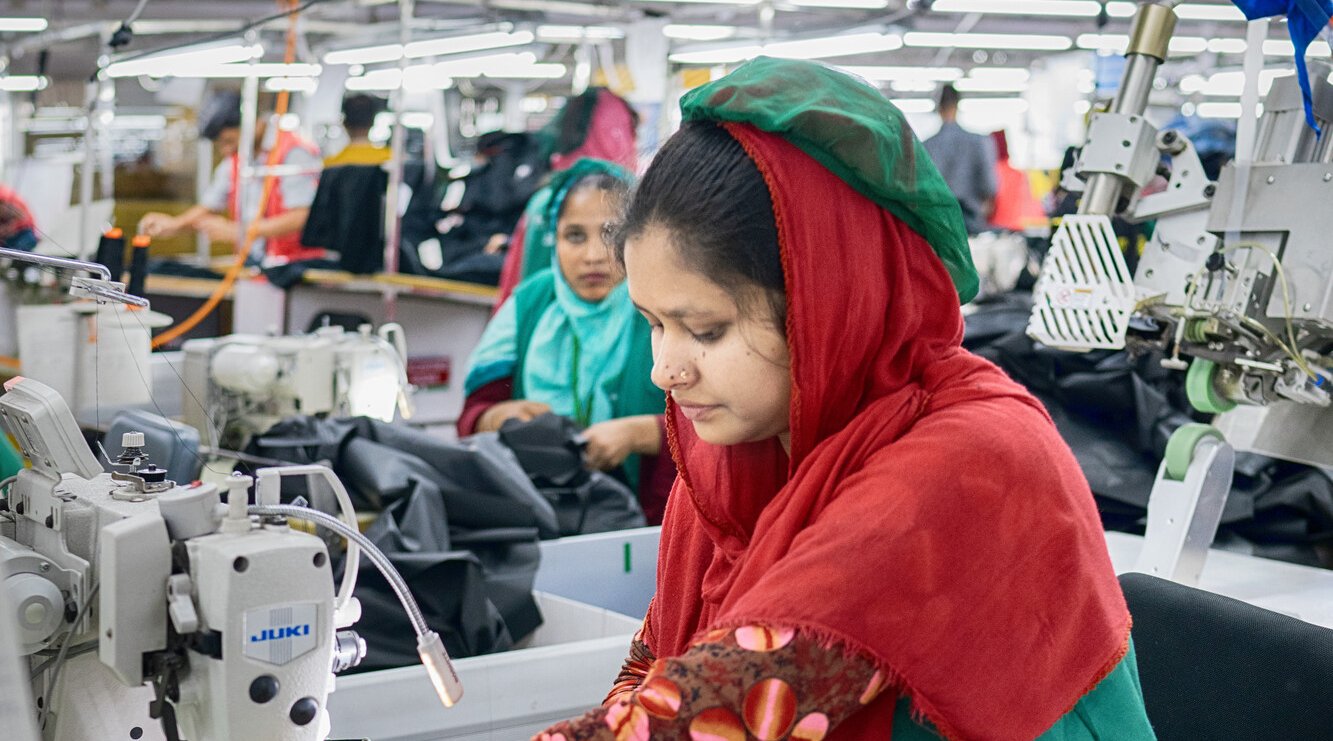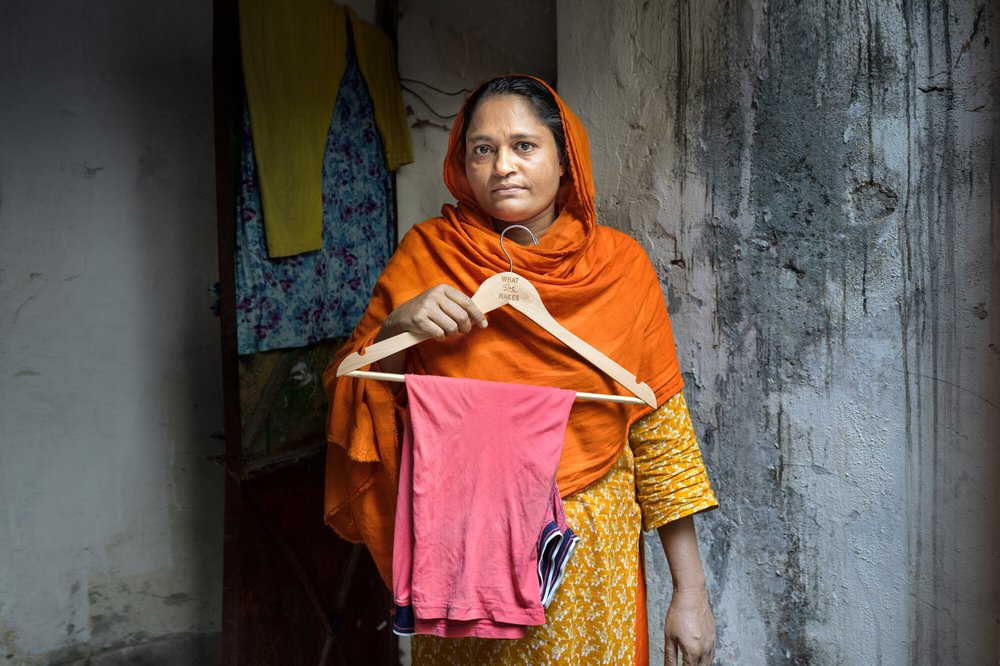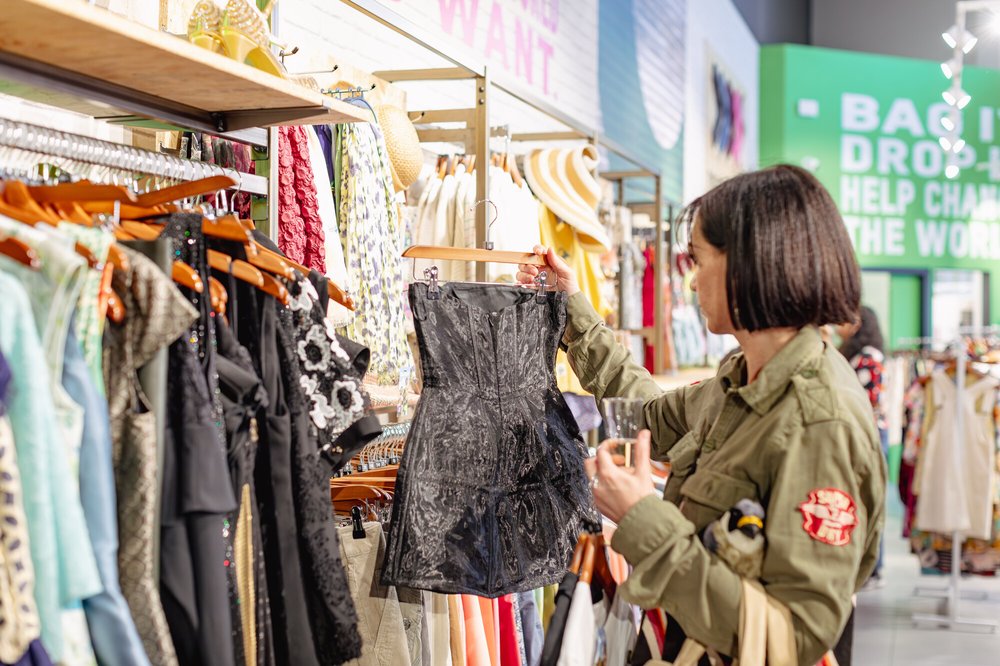
Photo credit: Fabeha Monir/Oxfam
Impact stories
Sustainable fashion
We're urging clothing companies to take the crucial next step in creating a fairer fashion industry.
Together, we’re tackling poverty in the fashion industry.
Some of the women who make our clothes don't earn enough to live on – making them poorer and less able to change their circumstances.
Despite long hours away from their families, working full-time plus many hours of overtime, big clothing brands don't pay garment workers enough money to cover the basics of life: food and decent shelter.
Photo credit: Fabeha Monir/Oxfam

Sabrina [pictured], is a garment worker in Dhaka, Bangladesh with the What She Makes campaign. Sabrina has been working in garments for over 12 years now and is the sole provider for three children who live in the village.
She does shirt collar scissoring with a target of 2000 pieces in a day. With a wage of 9300 Bangladeshi Taka, shockingly, Sabrina is left with nothing after sending money for the children and paying bills.
The What She Makes campaign continues to fight for brands to significantly raise wages.
It has, and will also continue to:
- Draw media and public attention to the fact that many garment workers are living in poverty despite working full-time
- Call on brands to commit to paying living wages
- Contribute to labour rights dialogues
- Provide evidence (via research) about the insufficiency of current wages
From Bangladesh to Burkina Faso
Market trends show Bangladesh is now buying cotton directly from Burkina Faso
This helps make the cotton supply chain stronger. Farmers who use ethical and fair ways of working can produce steady amounts of cotton. This is good for suppliers and for local farming communities.
However, there are still challenges. Global market changes can affect how safe and steady this trade is.
In Burkina Faso, Oxfam continues to support local leaders and help communities grow stronger. The example below from Boulsa, Burkina Faso, shows this work in action.
Strengthening climate resilience and protecting access to water
Boureima, using the borehole built in 2024. Photo credit: Mohamed Boureima Adamou/ Oxfam
Since this borehole has been operational, our families no longer have to travel long distances for water.”
Boureima, Resident of Boulsa, Burkina Faso, West Africa
In Boulsa, Burkina Faso, local groups supported by Oxfam are working with community leaders like Boureima to help people adapt to the changing climate and protect water sources.
As more people move into the area and local resources come under pressure, Boureima’s community has taken action. They are using farming methods that are better for the environment and speaking up for better local services, like roads and water systems.
In 2024, with support from the community and partner BMZ, a new borehole was built. This replaced an old well that was nearly empty from overuse.
More about the partner, BMZ
The BMZ project is designed in collaboration with other humanitarian and development organisations to support the State's efforts to manage these multifaceted crises, particularly in the central North region.
The project aims to reach 70,000 people, and it supports the most vulnerable local host communities. 70% are internally displaced persons, and 30% are young people, women, and households of people with specific needs (particularly people living with a disability).
What we wear has power
A woman browses clothes at the Manchester Superstore in Manchester Fort Shopping Park. Photo credit: Fiona Finchett / Oxfam

Take part in Oxfam’s Second Hand September. Shop second hand to take a stance against fast fashion and dress for a fairer world.